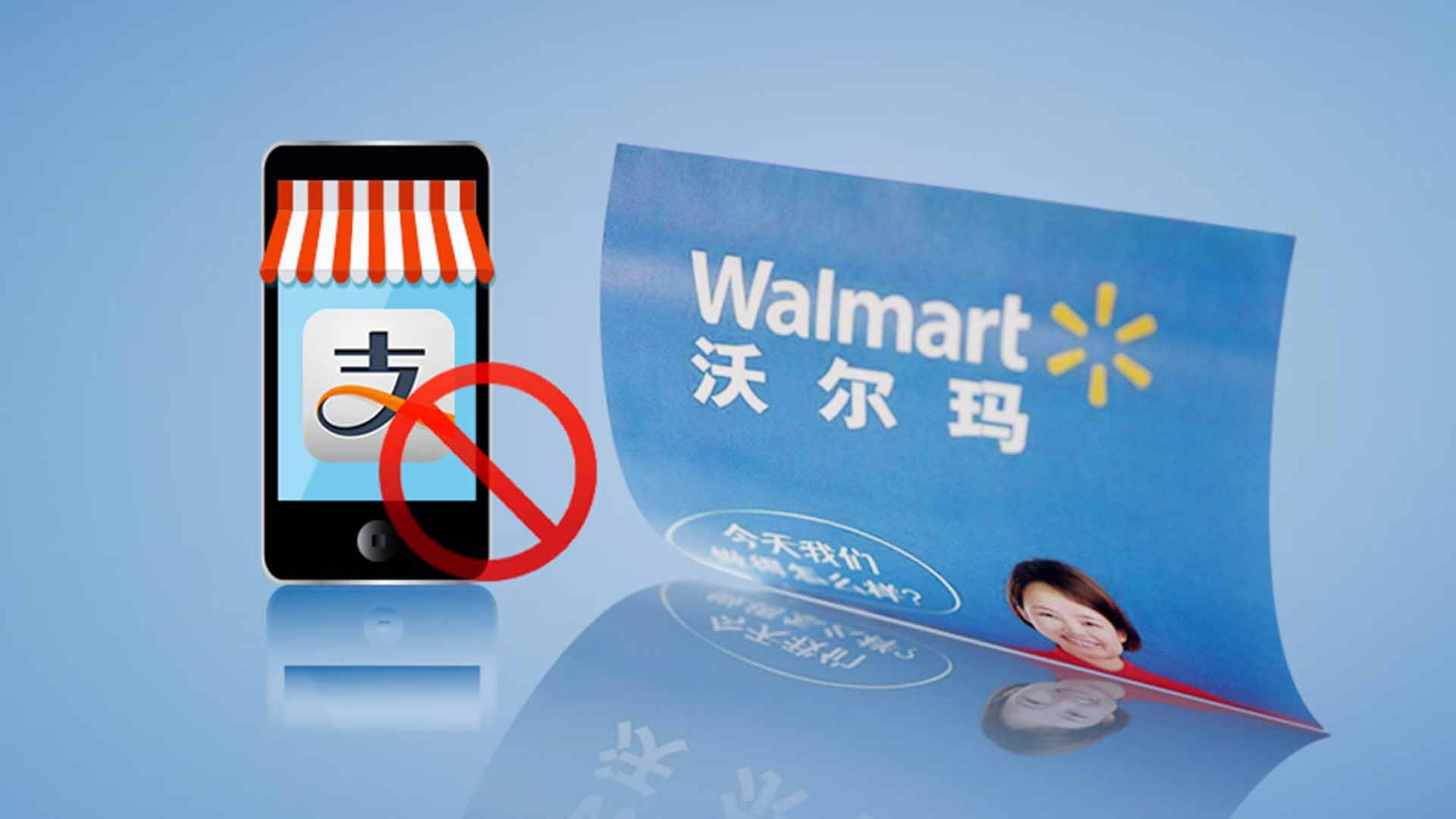
Business
22:50, 28-Mar-2018
Walmart in southwest China halts Alipay service, embraces WeChat Pay
By CGTN's Li Shengnan

Walmart has stopped accepting Alibaba's Alipay at its stores in southwest China. The American retailer struck a deal with Tencent instead, to use its WeChat payment system.
Walmart declined to explain why, saying the business decision is intended to help them offer the best all-round shopping experience for customers, and WeChat Pay is widely accepted and trusted in China.
But perhaps some customers don't agree. Online, people complained that Walmart's decision can't stop them from using Alipay and the world's largest retailer is not their only option.
The move also underscores how China's retail market is dividing into two camps.
Alibaba is China's top e-commerce player, while Tencent is strong in social media and gaming.
Both companies have been on shopping sprees to add brick-and-mortar stores to their shopping carts, in a bid to digitize physical channels by their Internet technologies. Most of the top retailers have picked which side to take, either to align with Alibaba... such as Yintai and Sun Art did, or to go with Tencent as Yonghui, Carrefour and Walmart chose.
The big bosses behind the two camps once assured that the competition between them is friendly.
"We compete, but it does not mean that I have to hate them,” said Alibaba's founder and board chairman Jack Ma at the 2017 Fortune Forum. "Don’t hate your competitors, respect your competitors and learn from him. I respect Tencent."
Tencent's Pony Ma has expressed the same view. He said Tencent and Alibaba are competitors in a dozen fields and the two have really fierce competition, but it does good to both of them because reasonable competition promotes development.
However, as the competition continues to ramp up, one question remains for consumers: Are they supposed to take sides as well?

SITEMAP
Copyright © 2018 CGTN. Beijing ICP prepared NO.16065310-3
Copyright © 2018 CGTN. Beijing ICP prepared NO.16065310-3